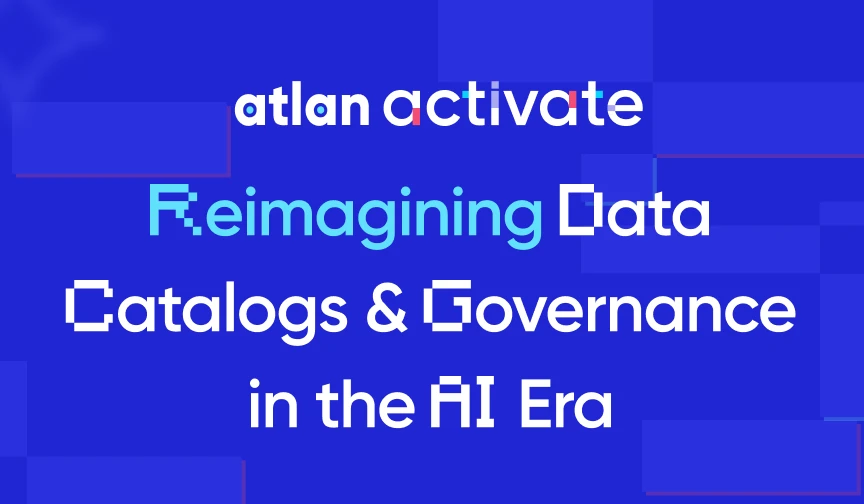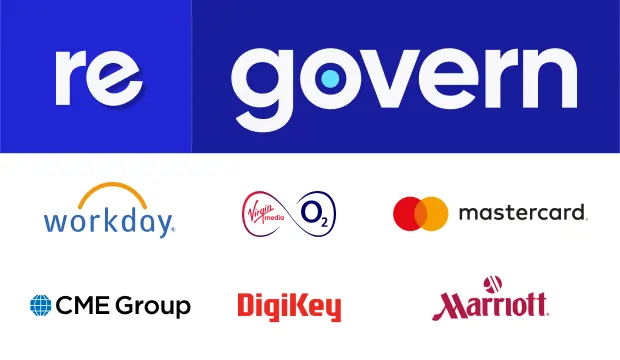Part 2: Operating Principles
How we translate foundations into daily actions
Earn Your Seat Every Day
At Atlan, no one is entitled to their role. Not the CEO. Not the VPs. Not you.
Every day, you must earn your seat at the table.
This isn't about job security or creating anxiety. It's about maintaining the hunger, humility, and hustle that built Atlan. Comfort is the enemy of greatness.
Earning your seat means:
• Your past achievements are just that - past
• Your title doesn't make you valuable - your contribution does
• Your experience informs but doesn't excuse current performance
• Your tenure creates responsibility, not entitlement
Story: The Senior Engineer Who Started Over
One of our most senior engineers noticed they'd been coasting on past contributions. In a one-on-one, they said: "I realised I wouldn't hire myself based on my last quarter's work."
Instead of defensiveness, they chose renewal. They took on the hardest, most unglamorous project available. They paired with junior engineers to relearn basics. They shipped more in the next quarter than in the previous year.
Their vulnerability inspired the entire team. "Earning your seat" became a rallying cry, not a threat.
As a leader, you model this by:
1. Taking on the work no one wants: Leaders do the dishes
2. Measuring yourself by today's impact: Not yesterday's achievements
3. Staying close to the ground: Write code, talk to customers, feel the pain
4. Learning constantly: The moment you think you know enough, you don't
5. Competing with yourself: Are you better than last quarter?
Every day, you must earn your seat at the table.
This isn't about job security or creating anxiety. It's about maintaining the hunger, humility, and hustle that built Atlan. Comfort is the enemy of greatness.
Earning your seat means:
• Your past achievements are just that - past
• Your title doesn't make you valuable - your contribution does
• Your experience informs but doesn't excuse current performance
• Your tenure creates responsibility, not entitlement
Story: The Senior Engineer Who Started Over
One of our most senior engineers noticed they'd been coasting on past contributions. In a one-on-one, they said: "I realised I wouldn't hire myself based on my last quarter's work."
Instead of defensiveness, they chose renewal. They took on the hardest, most unglamorous project available. They paired with junior engineers to relearn basics. They shipped more in the next quarter than in the previous year.
Their vulnerability inspired the entire team. "Earning your seat" became a rallying cry, not a threat.
As a leader, you model this by:
1. Taking on the work no one wants: Leaders do the dishes
2. Measuring yourself by today's impact: Not yesterday's achievements
3. Staying close to the ground: Write code, talk to customers, feel the pain
4. Learning constantly: The moment you think you know enough, you don't
5. Competing with yourself: Are you better than last quarter?
Context Over Control
Traditional management is about control. Atlan leadership is about context.
Give people the why, the what, and the constraints. Let them figure out the how.
We hire smart people not to tell them what to do, but to enable them to do what's best. Your role is to provide:
• Clear objectives: What success looks like
• Rich context: Why this matters, how it connects to our mission
• Explicit constraints: Budget, timeline, technical limitations
• Decision rights: What they own vs. what needs escalation
Then step back.
Story: The Pricing Model Revolution
Our pricing model needed an overhaul. Instead of a top-down directive, leadership shared context: customer feedback, competitive analysis, unit economics, growth targets.
A cross-functional team formed organically. They designed a model that leadership hadn't even considered. It was more radical than anything we would have mandated, but it was grounded in the context we'd shared.
The result? 3x improvement in conversion rates and happier customers. The team owned it because they created it.
Providing context effectively means:
1. Over-communicate the why: People can handle any "what" if they understand "why"
2. Share the full picture: Including the messy, uncertain parts
3. Trust people with bad news: They can handle it and often have solutions
4. Make information accessible: Documentation, recordings, open meetings
5. Resist the urge to prescribe: Your job is to enable, not dictate
Give people the why, the what, and the constraints. Let them figure out the how.
We hire smart people not to tell them what to do, but to enable them to do what's best. Your role is to provide:
• Clear objectives: What success looks like
• Rich context: Why this matters, how it connects to our mission
• Explicit constraints: Budget, timeline, technical limitations
• Decision rights: What they own vs. what needs escalation
Then step back.
Story: The Pricing Model Revolution
Our pricing model needed an overhaul. Instead of a top-down directive, leadership shared context: customer feedback, competitive analysis, unit economics, growth targets.
A cross-functional team formed organically. They designed a model that leadership hadn't even considered. It was more radical than anything we would have mandated, but it was grounded in the context we'd shared.
The result? 3x improvement in conversion rates and happier customers. The team owned it because they created it.
Providing context effectively means:
1. Over-communicate the why: People can handle any "what" if they understand "why"
2. Share the full picture: Including the messy, uncertain parts
3. Trust people with bad news: They can handle it and often have solutions
4. Make information accessible: Documentation, recordings, open meetings
5. Resist the urge to prescribe: Your job is to enable, not dictate
Disagree and Commit
Strong opinions, loosely held. This principle separates great teams from good ones.
Fight like hell for what you believe. Then commit completely once the decision is made.
At Atlan, we want passionate debate. We need diverse perspectives. We thrive on constructive conflict. But once we decide, we move as one.
The two parts are equally important:
• Disagree: Share your perspective forcefully. Challenge assumptions. Poke holes. Play devil's advocate. Your silence helps no one.
• Commit: Once decided, execute with full energy. No "I told you so." No passive resistance. No hallway grumbling.
Story: The Great Monolith Debate
Our architecture team was split: maintain the monolith or move to microservices. Debates were heated. Each side had valid points. Data was marshalled. Prototypes were built. Voices were raised.
The decision: stay with the monolith for another year. Half the team disagreed strongly.
What happened next defined us. The microservices advocates became the monolith's biggest champions. They channelled their energy into making it better. They documented why it was the right choice. When new engineers questioned it, they defended it.
A year later, when we did move to microservices, those same engineers led the migration. Their commitment to the "wrong" decision had made the "right" timing possible.
As a leader, you model disagree and commit by:
1. Creating space for dissent: "What's the strongest argument against this?"
2. Showing your own commitment: Especially to decisions you disagreed with
3. Calling out undermining: Address passive resistance immediately
4. Documenting decisions: Include the dissenting views and why we proceeded
5. Revisiting when appropriate: Commit doesn't mean forever
Fight like hell for what you believe. Then commit completely once the decision is made.
At Atlan, we want passionate debate. We need diverse perspectives. We thrive on constructive conflict. But once we decide, we move as one.
The two parts are equally important:
• Disagree: Share your perspective forcefully. Challenge assumptions. Poke holes. Play devil's advocate. Your silence helps no one.
• Commit: Once decided, execute with full energy. No "I told you so." No passive resistance. No hallway grumbling.
Story: The Great Monolith Debate
Our architecture team was split: maintain the monolith or move to microservices. Debates were heated. Each side had valid points. Data was marshalled. Prototypes were built. Voices were raised.
The decision: stay with the monolith for another year. Half the team disagreed strongly.
What happened next defined us. The microservices advocates became the monolith's biggest champions. They channelled their energy into making it better. They documented why it was the right choice. When new engineers questioned it, they defended it.
A year later, when we did move to microservices, those same engineers led the migration. Their commitment to the "wrong" decision had made the "right" timing possible.
As a leader, you model disagree and commit by:
1. Creating space for dissent: "What's the strongest argument against this?"
2. Showing your own commitment: Especially to decisions you disagreed with
3. Calling out undermining: Address passive resistance immediately
4. Documenting decisions: Include the dissenting views and why we proceeded
5. Revisiting when appropriate: Commit doesn't mean forever
Think Like an Owner, Act Like a Servant
This paradox defines Atlan leadership: the accountability of ownership with the humility of service.
Own outcomes completely. Serve others relentlessly.
Thinking like an owner means:
• Every problem is your problem
• Every customer is your customer
• Every expense is from your pocket
• Every hire is for your team
• Every failure is your responsibility
Acting like a servant means:
• Your team's success is your success
• Your role is to enable, not command
• Your privilege is to serve, not be served
• Your satisfaction comes from others' growth
• Your legacy is the leaders you develop
Story: The CEO Who Cleaned Toilets
During a critical product launch, our office toilets backed up. The facilities team was overwhelmed. Everyone was stressed, working round the clock.
Our CEO grabbed cleaning supplies. For the next hour, he unclogged toilets and mopped floors. No fanfare. No announcement. Just work that needed doing.
Word spread anyway. The energy shifted. If the CEO could clean toilets during a launch, what excuse did anyone have? Teams stayed later, worked harder, complained less. Not because they were asked to - because they were inspired to.
That launch exceeded every target. Years later, people still talk about the CEO who cleaned toilets.
Balance ownership and service by:
1. Taking responsibility up, giving credit down: Problems are yours, successes are theirs
2. Making decisions like you'll live with them forever: Because your team will
3. Doing the unglamorous work: Especially when no one's watching
4. Investing in people like they're your legacy: Because they are
5. Treating company resources more carefully than your own: Owners are stewards
Own outcomes completely. Serve others relentlessly.
Thinking like an owner means:
• Every problem is your problem
• Every customer is your customer
• Every expense is from your pocket
• Every hire is for your team
• Every failure is your responsibility
Acting like a servant means:
• Your team's success is your success
• Your role is to enable, not command
• Your privilege is to serve, not be served
• Your satisfaction comes from others' growth
• Your legacy is the leaders you develop
Story: The CEO Who Cleaned Toilets
During a critical product launch, our office toilets backed up. The facilities team was overwhelmed. Everyone was stressed, working round the clock.
Our CEO grabbed cleaning supplies. For the next hour, he unclogged toilets and mopped floors. No fanfare. No announcement. Just work that needed doing.
Word spread anyway. The energy shifted. If the CEO could clean toilets during a launch, what excuse did anyone have? Teams stayed later, worked harder, complained less. Not because they were asked to - because they were inspired to.
That launch exceeded every target. Years later, people still talk about the CEO who cleaned toilets.
Balance ownership and service by:
1. Taking responsibility up, giving credit down: Problems are yours, successes are theirs
2. Making decisions like you'll live with them forever: Because your team will
3. Doing the unglamorous work: Especially when no one's watching
4. Investing in people like they're your legacy: Because they are
5. Treating company resources more carefully than your own: Owners are stewards




















